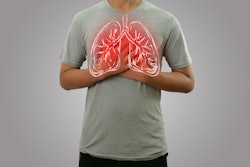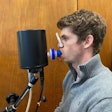
Mental health disorders among people with COPD are underdiagnosed and untreated, leading to worsened symptoms and decreased quality of life. That’s according to the study, “Clinical Characteristics of Patients With COPD and Comorbid Depression and Anxiety: Data From a National Multicenter Cohort Study,” published in Chronic Obstructive Pulmonary Diseases: Journal of the COPD Foundation.
Screening questionnaires are often used to detect symptoms of depression and anxiety, which are common comorbidities in people with COPD. But those tools are unable to definitively confirm the diagnosis. The study was a cross-sectional, secondary analysis of the Anxiety and COPD Evaluation, a national, multicenter, observational study aimed at evaluating questionnaires used to screen people with COPD.
According to a news release, of the 220 patients that were eligible for the study, 18 met the Mini-International Neuropsychiatric Interview (MINI) criteria for depression and 17 met the same criteria for anxiety. Of those, fewer than half were receiving mental health counseling or using antidepressants.
Jing Gennie Wang, MD, a pulmonologist at The Ohio State University Wexner Medical Center and first author of the study, said that the research also demonstrated that depression and anxiety are associated with increased breathlessness, reduced functionality, worse sleep quality and decreased quality of life.
“People with COPD are sometimes screened for mental health disorders using questionnaires, however [the questionnaires] lack the ability to confirm the diagnosis of depression and anxiety and thus may hinder those with the diagnosis from receiving appropriate medical care,” Dr. Wang said. “Our study demonstrates the need to appropriately diagnose mental health disorders in people with COPD and help reduce system burden and improve quality of life. Further research is needed to determine how treating mental health disorders could improve outcomes for people with COPD over time.”






















